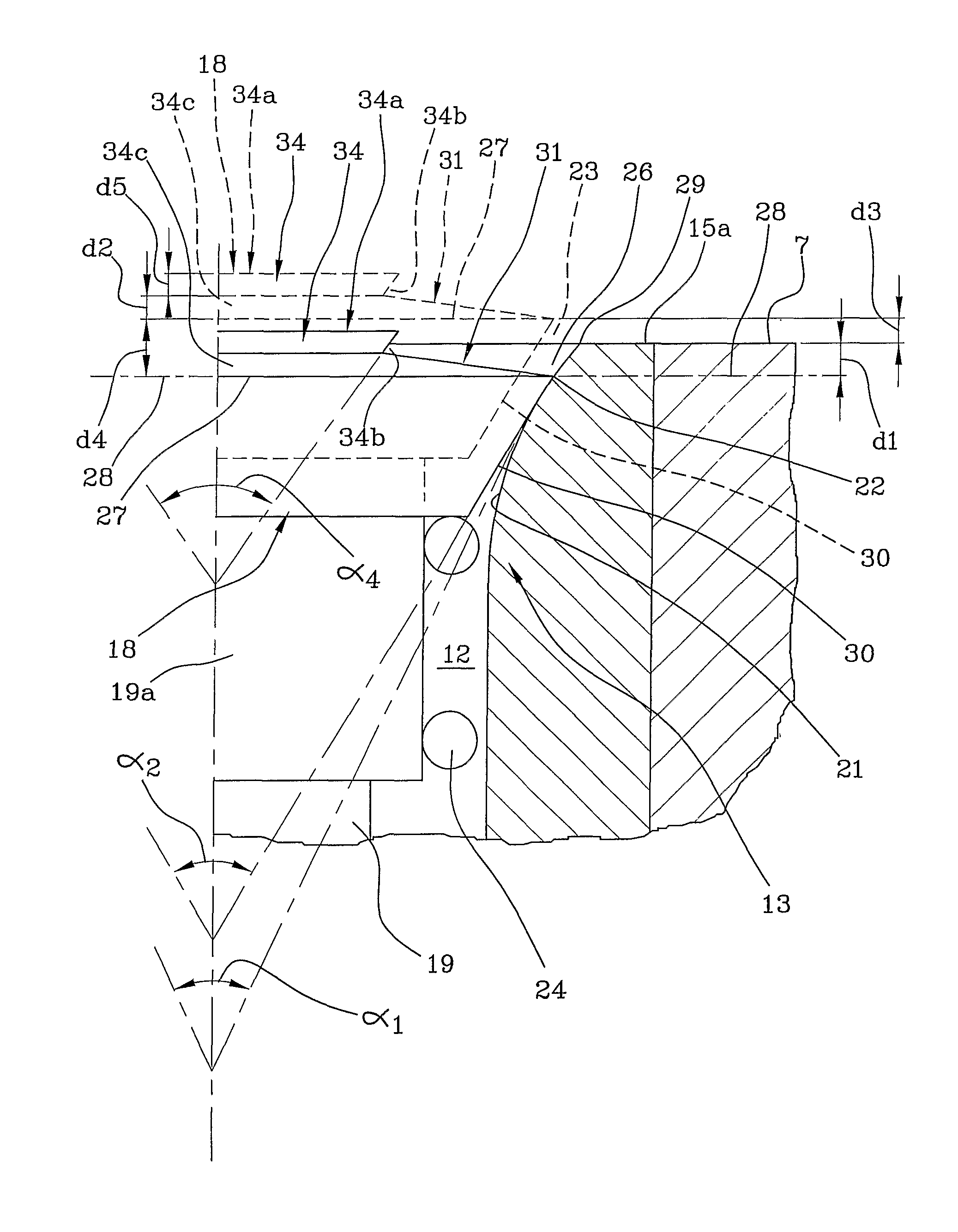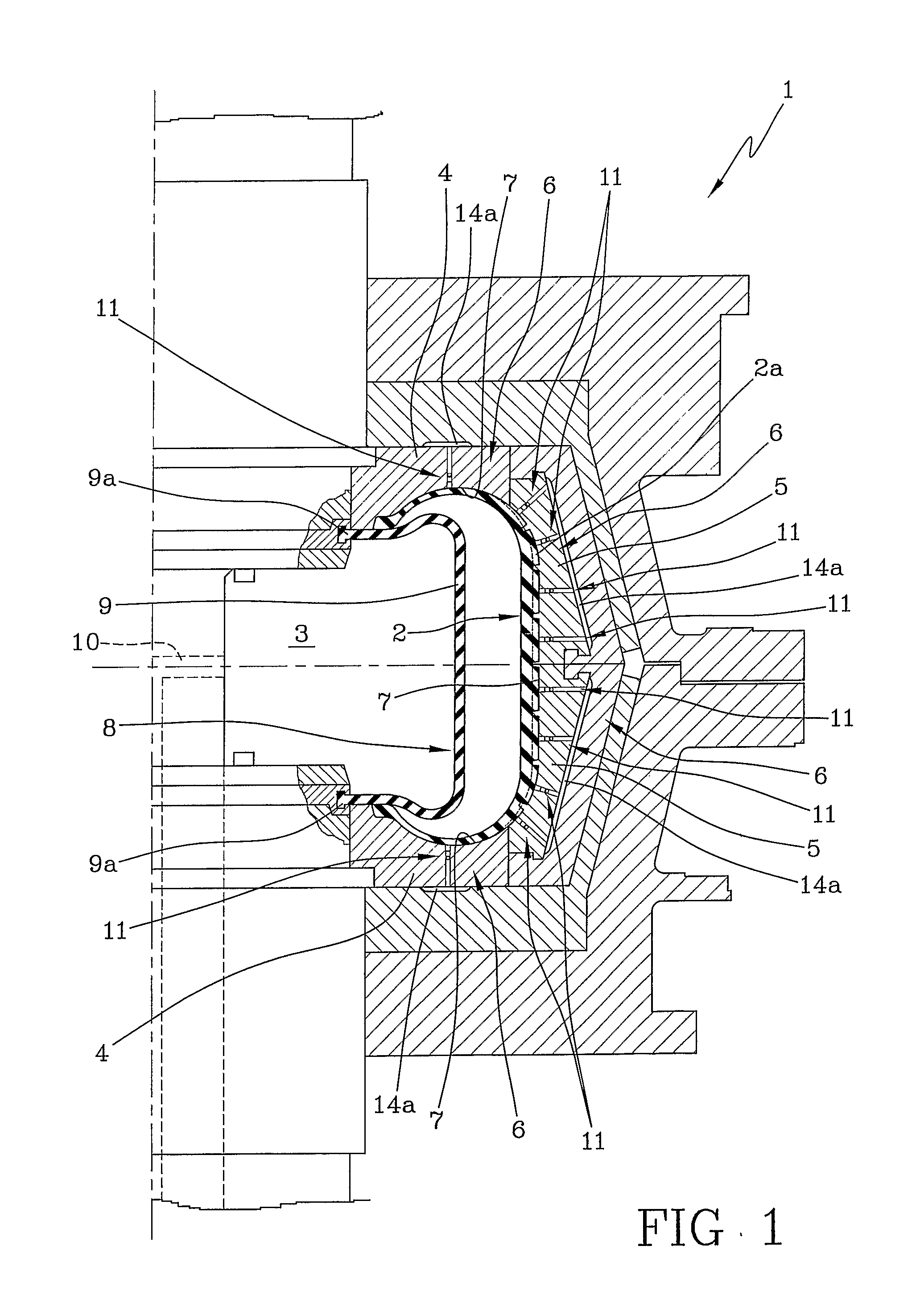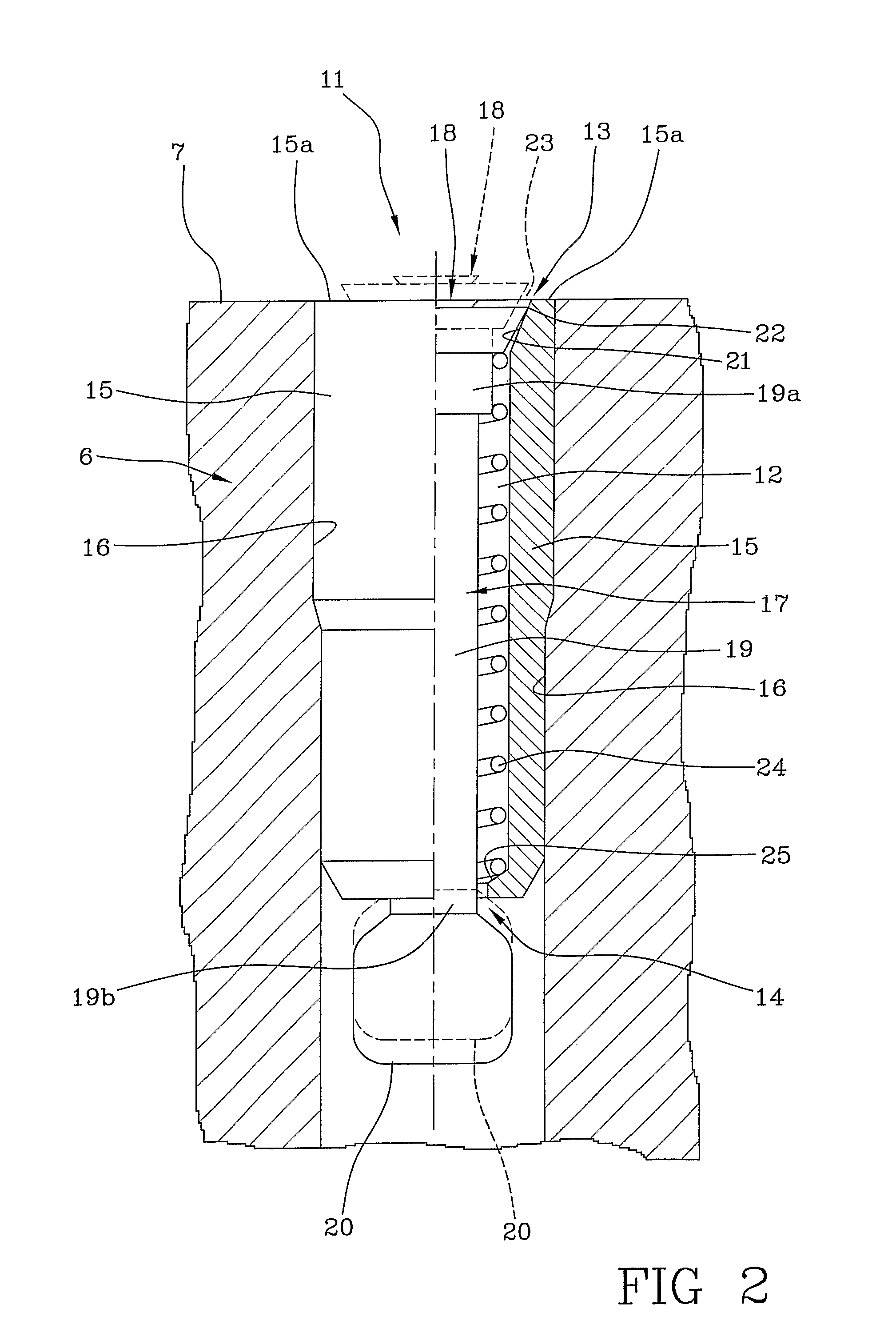Method and apparatus for manufacturing tyres for vehicle wheels
a technology for vehicle wheels and manufacturing methods, applied in the direction of tyre parts, transportation and packaging, other domestic articles, etc., can solve the problems of affecting the appearance affecting the quality of the finished product, so as to prevent or avoid the effect of stopping the sam
- Summary
- Abstract
- Description
- Claims
- Application Information
AI Technical Summary
Benefits of technology
Problems solved by technology
Method used
Image
Examples
Embodiment Construction
[0040]With reference to FIG. 1, a vulcanisation mould belonging to an apparatus for manufacturing tyres for vehicle wheels in accordance with the present invention has been generally denoted at 1.
[0041]This apparatus generally comprises devices adapted to form a green tyre 2 and devices capable of transferring the green tyre 2 into a moulding cavity 3 of the vulcanisation mould 1. Said tyre-forming and transferring devices are neither shown nor further described as they can be made in any convenient manner.
[0042]As shown in FIG. 1, the vulcanisation mould 1 has a pair of axially opposite cheeks 4 and a plurality of circumferential sectors 5 that, when the mould is closed, define the holding walls 6 of the moulding cavity 3. The holding walls 6 delimit an inner surface 7 of the moulding cavity 3 the shape of which matches the final conformation to be given to the tyre. The green tyre 2, once closed in mould 1, is pressed against the holding walls 6 by a suitable device 8. Subsequentl...
PUM
| Property | Measurement | Unit |
|---|---|---|
| embedding distance | aaaaa | aaaaa |
| separation distance | aaaaa | aaaaa |
| embedding distance | aaaaa | aaaaa |
Abstract
Description
Claims
Application Information
 Login to View More
Login to View More - R&D
- Intellectual Property
- Life Sciences
- Materials
- Tech Scout
- Unparalleled Data Quality
- Higher Quality Content
- 60% Fewer Hallucinations
Browse by: Latest US Patents, China's latest patents, Technical Efficacy Thesaurus, Application Domain, Technology Topic, Popular Technical Reports.
© 2025 PatSnap. All rights reserved.Legal|Privacy policy|Modern Slavery Act Transparency Statement|Sitemap|About US| Contact US: help@patsnap.com



